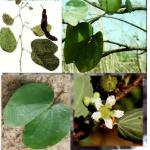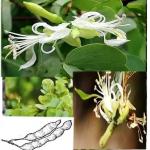
Kidney stone natural remedy
- By narso10
- On 2025-08-26
- 0 comments
Kidney stones are defined as the presence of solid, crystallized formations in the urinary tract, primarily in the kidneys. They can be very painful and debilitating for those who suffer from them. In addition to classic, allopathic treatments, more and more people are turning to natural practices. Do you suffer from kidney stones? CONTACT US HERE. In this article, a real resource to help you relieve your kidney stones, we will explore a range of grandmother's remedies.
Please visite ours herbal teas
Types of Kidney Stones
It is important to note that kidney stones are not homogeneous; rather, they differ based on their chemical composition. The main categories include:
Calcium stones: The most prevalent type , usually composed of calcium oxalate or calcium phosphate.
Uric acid stones: Form in persistently acidic urine, often associated with gout and high animal protein intake.
Struvite stones: Composed of magnesium ammonium phosphate, typically linked to recurrent urinary tract infections caused by urease-producing bacteria.
Cystine stones: Rare and caused by an inherited condition called cystinuria, leading to excessive urinary excretion of cystine .
Lire aussi et partager ce produit sur l'hépatite B
Risk Factors and Etiology
The formation of kidney stones is multifactorial. First, low fluid intake and dehydration remain the most important modifiable risk factors. A reduced urine volume leads to increased concentration of lithogenic substances. Secondly, dietary habits strongly influence risk. High sodium intake enhances calcium excretion, while diets rich in animal proteins increase uric acid levels. Similarly, oxalate-rich foods such as spinach, chocolate, and nuts can promote calcium oxalate stone formation (Moe, 2006).
Furthermore, metabolic disorders such as hyperparathyroidism, obesity, type 2 diabetes, and metabolic syndrome increase susceptibility to stone disease. Genetic predisposition also plays a significant role, with a family history doubling the risk (Curhan, 2007). Finally, environmental factors, such as hot climates, further contribute to stone prevalence by promoting dehydration.
Clinical Manifestations
Symptoms vary depending on the size and location of the stone. Small calculi may pass unnoticed, but larger stones often cause renal colic, a hallmark symptom characterized by sudden, severe, and fluctuating flank pain radiating to the groin. This pain is frequently accompanied by hematuria (blood in urine), nausea, vomiting, urinary urgency, and dysuria.
If a stone causes obstruction and infection simultaneously, patients may develop fever and chills, representing a medical emergency due to the risk of sepsis. Long-standing obstruction, on the other hand, can result in hydronephrosis and potentially irreversible renal damage .
Please visite ours herbal teas
Diagnosis
Diagnosis relies on both clinical assessment and imaging. Initially, history-taking and physical examination help identify the characteristic features of renal colic. Imaging modalities are then employed to confirm the diagnosis.
Non-contrast helical CT scan of the abdomen and pelvis is considered the gold standard because of its high sensitivity and specificity.
Ultrasound is widely used, particularly in pregnant women and children, due to its safety and accessibility.
X-rays (KUB radiography) can detect radiopaque stones but miss uric acid or cystine stones.
Additionally, laboratory tests such as urinalysis (to detect hematuria and crystals), serum electrolytes, and metabolic evaluations (uric acid, calcium, phosphate) are essential for determining underlying causes and guiding prevention strategies
Please read the guidelines and leave us a message on WhatsApp for a complete healing remedy.
PLANTS AGAINST KIDNEY STONES
PLANTS AGAINST KIDNEY STONES
Lire aussi et partager ce produit sur l'hépatite B
Parsley is an aromatic plant with anti-inflammatory and diuretic properties. Therefore, it is perfectly suited for kidney stones. It will soothe the pain and also help with the elimination of stones. To benefit from it, steep a small handful of fresh parsley in 250 ml of boiling water for 5 minutes, covered. You can drink up to 3 cups a day for 1 week.Basil, which is also an aromatic plant, is rich in acetic acid, which helps dissolve crystals. You can consume it as an herbal tea like parsley or add a good amount to your dishes as a preventive measure.
Please to join us hier .
Add a comment








